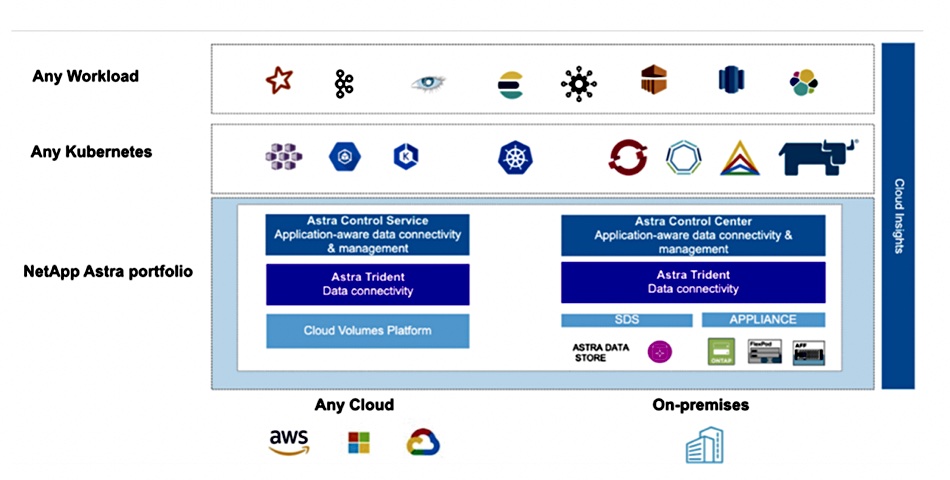NetApp, is announcing the availability of an “early preview” of a file-focussed addition to its Astra family of Kubernetes products so that users get block stores and a cloud-native file store.
Astra Data Store (ADS) is a Kubernetes-native shared file unified data store for containers and virtual machines (VMs) with advanced enterprise data management and a standard NFS client. The software is based on NetApp’s enterprise data management technologies — meaning, we understand, ONTAP.

Eric Han, a NetApp VP of product management, said in a supplied statement: “With Astra Data Store we’re giving customers more infrastructure options to build modern datacentres, with the ability to deploy world-leading primary storage and data management solutions directly into their Kubernetes clusters.”
Back in August last year, Han blogged that: “the Project Astra team has been redesigning the NetApp storage operating system, ONTAP, to be Kubernetes-native.” We think this is the first appearance of cloud-native ONTAP functionality.
ADS has been designed to fix challenges for Kubernetes users, including the lack of mature shared file services, proprietary file clients, and managing data stores separately for virtual machines and containers. It is said to be one of the first Kubernetes-native, unified shared file services for containers and VMs, and offering multiple parallel file systems on the same resource pool.
The ADS software includes replication and erasure coding technologies for Kubernetes-native workloads so as to increase resiliency.
In the coming months NetApp will introduce more data services, hybrid, and multi-cloud capabilities by itself and co-developed with partners and customers.

The ADS preview will be publicly available over the coming months, with general availability targeted for the first half of 2022.
Comment
By converting its ONTAP storage software functionality to containerised code and moving it into the Kubernetes space, NetApp is making sure that it is in the front line for offering data storage and services to cloud-native applications and developers.
This means NetApp will be able to offer strong competition to cloud native startups such as OnDat, the renamed StorageOS, and Pure’s Portworx business unit. It will be able to reassure its existing customers that they have no need to move a risky startup to get such services — they can stay with trusty NetApp instead. This message could help prevent DevOps people inside NetApp’s customer base choosing a cloud-native startup for their storage. And NetApp can also go to cloud-native developers outside its base and say it is a more reliable storage supplier than any young startup.








